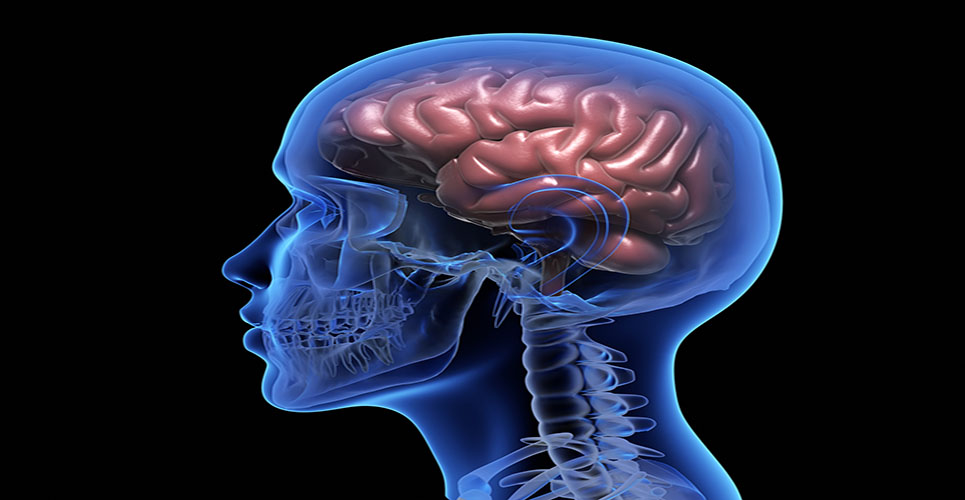↓Article continues below this sponsored advert↓

Explore the latest advances in cardiovascular care delivered by renowned experts from recognised Centres of Excellence and other NHS trusts around the UK. Gain CPD, put your burning questions to the experts, and boost your confidence when it comes to care for your patients.
↑Advertisement↑
H. Lundbeck A/S (Lundbeck) and Otsuka Pharmaceutical Co Ltd (Otsuka) have announced the continuation of the development program of Lu AE58054 for the treatment of Alzheimer’s disease, initiating the first out of four currently planned phase III clinical trials with the compound in Alzheimer’s disease.
The investigational compound, Lu AE58054 is a selective 5HT6 receptor antagonist with a different proposed mechanism of action than currently available Alzheimer’s medications. Notably, a focus on the 5-HT6 receptor is a different approach from the amyloid and tau hypotheses that have underpinned much of the drug research to date on Alzheimer’s disease.[1]
Lundbeck and Otsuka are now initiating the phase III program which is currently planned to consist of four trials. Several doses of Lu AE58054 ranging from 10-60 mg will be used in combination with donepezil in order to explore the effect of the compound in mild-to-moderate Alzheimer’s disease as adjunctive therapy to acetylcholinesterase inhibitors (AChEls). The key endpoints are Alzheimer’s Disease Assessment Scale – Cognitive Subscale (ADAS-cog), Activities of Daily Living (ADL), and the Clinical Global Impression of Change Scale (CGIC).
The program will enrol approximately 3,000 patients worldwide. The first trial will enrol 930 patients in the US, Canada and 15 other countries mainly in Europe and is expected to last up to three years.
Data from the phase II clinical study were presented at the Alzheimer’s Association International Conference (AAIC) in July 2013. This study showed that adjunctive therapy with Lu AE58054 (plus 10mg/day donepezil) at the selected dose resulted in statistically significant improvement in cognitive performance, as measured by the ADAS-cog (Alzheimer’s Disease Assessment Scale-cognitive sub-scale) over a 24 week treatment period versus placebo (plus 10mg/day donepezil). Secondary endpoints, including measures of global status and activities of daily living, also showed positive trends with the addition of Lu AE58054 compared with patients who only received donepezil, however the differences were not statistical significant.[2]
“Following consultations with different health agencies, with Otsuka we are now ready to start this major program,” says Executive Vice President Anders Gersel Pedersen, Head of Research & Development at Lundbeck, and continues: “We believe there is a strong need for more treatment options for patients with Alzheimer’s disease, and we see Lu AE58054 as a potentially promising therapy for this devastating disease”.
William H. Carson, MD, President and Chief Executive Officer, Otsuka Pharmaceutical Development and Commercialization Inc, said, ”Use of the serotonin 5-HT6 antagonism mechanism against the cognitive effects of Alzheimer’s is a promising hypothesis that we will seek to validate more fully in these phase III trials.”
About Lu AE58054
The 5-HT6-receptor is expressed in brain regions involved in cognition, such as the cortex and the hippocampus, and modulates activity of multiple neurotransmitter systems.[3] Lu AE58054 is a selective 5-HT6-receptor antagonist. In pre-clinical models, Lu AE58054 was shown to improve cognition and enhance the effects of the acetylcholinesterase inhibitor donepezil on hippocampal function. A number of early trials have demonstrated that a 5-HT6-receptor antagonist could offer potential benefits in the treatment of disorders such as Alzheimer’s diseasei and Lundbeck recently presented the positive results of a 24-week clinical phase II trial with Lu AE58054 as adjunctive therapy in Alzheimer’s disease, as mentioned above.[4]
About Alzheimer’s disease
Alzheimer’s disease is a progressive brain disorder in which the brain gradually degenerates. It most frequently occurs in people above 65 years of age. People with Alzheimer’s disease develop distressing changes in memory, thought, function and behaviour, which worsen over time. These changes increasingly impact the person’s daily life and reduce their independence until ultimately these patients are entirely dependent on others.[5]
Alzheimer’s disease also has an enormous impact on the patient’s caregiver. Most caregivers are close relatives who provide care at home — a demanding and exhausting role that represents a significant emotional and physical burden.
Worldwide, it is estimated that about 36 million people have dementia. With the shift towards an increasingly elderly population, it is predicted that the number of people affected by dementia will almost double every 20 years, and by the year 2050, 115 million people will have the conditionII, III. Alzheimer’s disease is the most common cause of dementia, accounting for 50 to 80% of these patients.[6]
The worldwide costs of dementia (estimated at around USD 600 billion in 2010) amount to more than 1% of gross domestic product (GDP).
References
- Mohandas E., et al. Neurobiology of Alzheimer’s disease. Indian Journal of Psychiatry 2009; 51(1): 55–61.
- Wilkinson J., et al. “A clinical Phase II study of Lu AE58054 added to stable donepezil treatment in patients with moderate Alzheimer’s disease.” Abstract presented at the Alzheimer’s Association International Conference; 2013 July 13-18; Boston, MA.
- Yun H. and Rhim H. The Serotonin-6 Receptor as a Novel Therapeutic Target. Experimental Neurobiology 2011; 20(4):159-168.
- ClinicalTrials.gov. Lu AE58054 Added to Donepezil for the Treatment for Moderate Alzheimer’s Disease. November 2009. Document accessible at: http://clinicaltrials.gov/show/NCT01019421. NLM Identifier: NCT01019421.
- Georges J, Jansen S, Jackson J, et al. Alzheimer’s disease in real life — the dementia career’s survey. International Journal Geriatric Psychiatry 2008; 23 (5): 546—551.
- Alzheimer’s Association. “Alzheimer’s changes the whole brain” Brain Tour. 2011. Document accessible at: http://www.alz.org/braintour/alzheimers_changes.asp.

